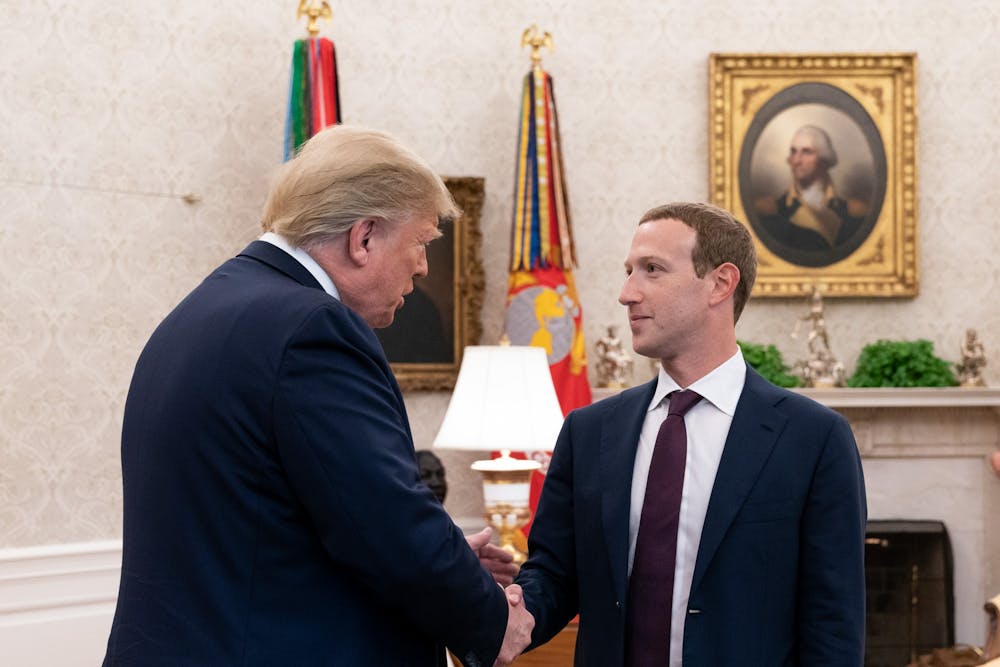One surprising ally in Facebook’s war against TikTok is U.S. President Donald Trump, who has a long history of oppressing Chinese tech companies like Huawei. Some may joke that Trump’s rage stems from when K-pop fans and TikTok users pranked his Tulsa rally in June. But the real reason for his hostility may be the hawkish stance this administration has long taken on China.
Huawei, the world’s biggest maker of smartphones and network equipment, is China’s first global tech brand taking to the international market. Sensing a threat, the Trump administration has moved to cut off Huawei’s access to chips and other technology. It has also barred federal funds from being used for Huawei equipment in U.S. networks. Branding Huawei as a data breach concern, Trump also encouraged allies to ban Huawei.
This is all too similar to Trump’s current attack on TikTok and WeChat, which is rooted not only in security concerns or anger toward Beijing, but also in something deeper: Trump’s entire “America First” agenda, his xenophobic base and his tanking approval rating.
Because of the pandemic, mass unemployment and a national reckoning with centuries of racism, Trump’s approval ratings have been lower in 2020 than late 2019. Building an image of a common enemy is his usual move to divert the public’s attention away from everything that’s going wrong.
Much like the British ban on Huawei, an obvious result of American influence, the actual impact of Trump’s executive order is at best dubious and at worst counterproductive. It is generally interpreted as a ban on transactions through WeChat. But can users still text, just not pay, through WeChat? Does this ban apply only to WeChat or to all Tencent-related transactions?
Furthermore, much like Trump’s tariffs on Chinese goods, this ban hurts American companies and consumers as well. If Apple does not allow devices to download WeChat, it risks losing a majority of the Chinese consumer market. Tencent also has numerous American investments and partnerships, making its transactions valuable for the American economy.
Although this order does more damage than good, Trump’s approval ratings geared upward after his contentious attack on China.
This is why Trump doesn’t care that his whimsical executive order impedes globalization or damages the already crumbling U.S. economy as long as the federal government can gain “key money” from Microsoft’s buyout of TikTok.
Trump simply wants to paint a reality television-style story of Chinese tech companies being the bad guys, hurting the U.S. and being screwed over by the wit of his administration.
Interestingly, Mark Zuckerberg, CEO of Facebook, agrees with Trump’s attack against TikTok. This is not the first time the two have fought on the same side. Facebook has long facilitated Trump’s agenda, and its lack of content moderation helps disseminate misinformation relating to the pandemic. Conspiracy theories have been circulating on Facebook pretty much unchecked. A major reason behind this, besides little investment in content moderation, is that the company’s dominance of social media, along with a regulatory vacuum, allows Facebook to profit at the expense of users’ privacy and the truth. Not regulating the content costs society, not Facebook.
As Chairman David Cicilline of House subcommittee on Antitrust, Commercial and Administrative Law noted, “Facebook hosts or enables countless pages and ads that are dedicated to conspiracy theories and calls to violence, including content that led to the white supremacist rally in Charlottesville in 2017.” According to Cicilline, Facebook can get away with this because “there’s no competition forcing” Facebook to “police” itself.
And so the Trump administration, after years of visa restrictions on and trade war against China, is now focusing on the battlefield of the internet, where Big Tech CEOs wield excessive power, as revealed in the Congress hearing on July 29. Zuckerberg was the only CEO to openly accuse Chinese media companies of espionage and information theft. This is ironic considering the actual evidence-based accusations of privacy violations against Facebook that the hearing unveiled.
Additionally, Facebook has bought up growing rivals to secure its market dominance. In 2012, while discussing buying Instagram, Zuckerberg wrote, “One thing about startups though is you can often acquire them.” And this principle may be why TikTok is so overtly attacked by Facebook, whose launch of a copycat feature Instagram Reels instantly made Zuckerberg a “centibillionaire.”
All this proves that profit, not ideology, guides the attack on Chinese tech companies like TikTok. What these attackers ignore is who would suffer from the TikTok and WeChat ban: the students who depend on these companies for communication with their families or the low-income Americans who depend on these companies for employment.
My hope is that, instead of bowing to Trump’s Sinophobia, people will look past stereotypes of Chinese people as espionage risks or of Chinese technology as “a threat to national security.” After all, this country is supposed to stand for tolerance and diversity, not Trump or Zuckerberg’s businessman mindset.
Shizheng Tie is a rising senior studying Environmental Engineering from Luoyang, China.





